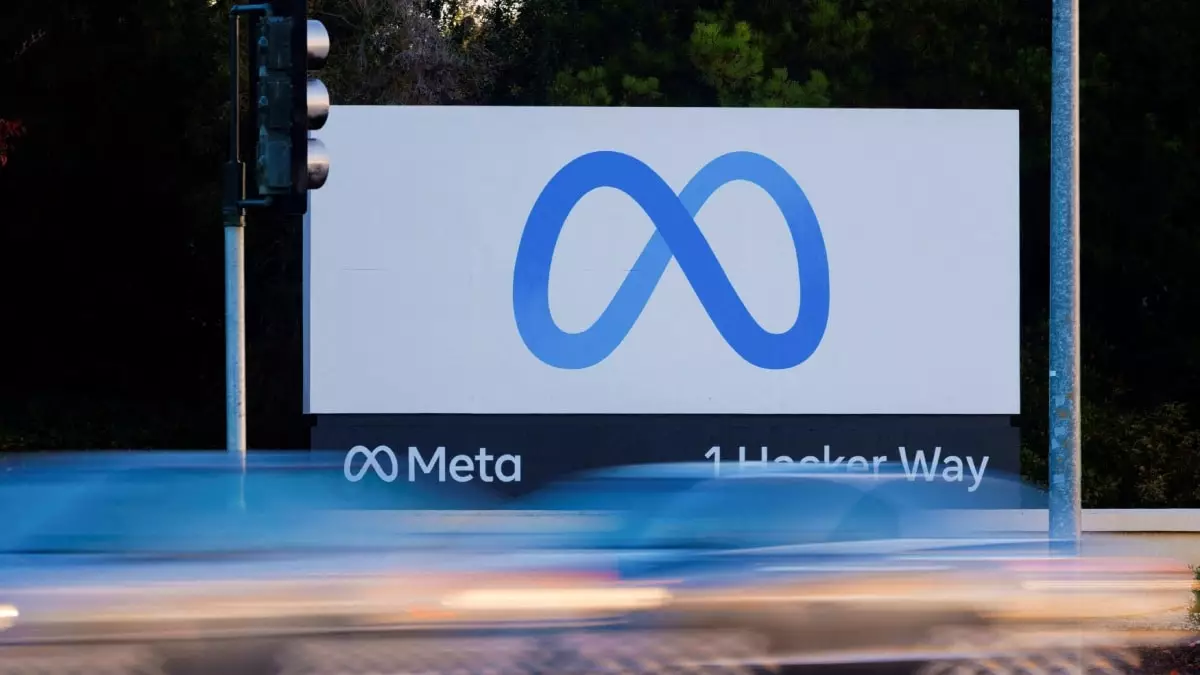The tech world has been rocked by the recent decision of European regulators to impose a staggering €798 million ($841 million) fine on Meta Platforms Inc. This monumental penalty marks the first time the U.S. tech titan has been held accountable for antitrust violations within the European Union, spotlighting the increasingly stringent regulatory environment for big tech players. As the repercussions of the decision unfold, the implications could resonate profoundly for both Meta and the broader tech landscape.
At the heart of this ruling lies a critical determination by the European Commission: Meta has been unlawfully tying its Facebook Marketplace service to its core social networking platform, Facebook. This practice, deemed anti-competitive, gives Meta an undue advantage over its rivals in the online classified ads sector. The antitrust chief of the EU, Margrethe Vestager, stated unequivocally that Meta’s actions were designed to prioritize its own Marketplace service at the expense of competitors. This landmark decision reflects a growing willingness from European authorities to challenge the business practices of large tech companies, emphasizing the need for fair competition in digital markets.
The significance of this ruling extends beyond the financial penalty. It embodies a shift in the regulatory environment, one that is increasingly inclined to protect smaller players from the predatory practices of larger incumbents. The decision follows a protracted investigation that uncovered how Meta’s extensive user base could be exploited to undermine competition, showcasing the EU’s firm stance against monopolistic behavior.
The fallout from the ruling has already begun to take shape, with Meta’s share prices dipping slightly following the announcement. The combination of regulatory pressure from the EU, ongoing scrutiny from U.S. legal systems, and competition from emerging platforms paints a challenging picture for the company. Recently, a U.S. judge ruled that a Federal Trade Commission lawsuit against Meta could proceed to trial, further complicating the company’s legal landscape.
Moreover, competitors are capitalizing on Meta’s troubles. The recent re-election of Donald Trump has prompted a surge in the popularity of Bluesky, a rival to Meta’s Threads app, illustrating how swiftly the landscape can shift. With Trump labeling Facebook as an “enemy of the people,” the political context surrounding social media platforms adds another layer of complexity for Meta as it navigates regulatory and market challenges.
As Margrethe Vestager prepares to exit her role, her tenure has been characterized by relentless scrutiny of Silicon Valley giants. With a track record that includes imposing billions in fines on companies like Google, her departure might signal a pivotal moment for tech regulation in Europe. Nonetheless, the repercussions of her policies and the framework she helped establish will likely continue to shape the regulatory landscape for years to come.
The new Digital Markets Act, a significant piece of legislation designed to manage the behavior of dominant tech firms, highlights a proactive approach to regulation. The fast-evolving environment creates a crucial need for these companies to innovate while adhering to stricter compliance requirements. Amazon, for example, recently avoided penalties by committing to reforms that ease concerns about anti-competitive practices. This sets a benchmark for firms like Meta to follow, emphasizing the importance of adapting business strategies in response to regulatory pressures.
Looking ahead, Meta has expressed its intention to appeal the ruling, arguing that it fails to consider the dynamics of a thriving European market. However, the lengthy appeals process will likely create uncertainty, and the path forward remains fraught with hurdles. The company is not only dealing with regulatory pressures but must also balance substantial investments in emerging technologies, such as artificial intelligence and virtual reality, which are critical for its long-term vision.
In light of these challenges, Meta’s recent pitch to adjust its advertising strategies on Facebook and Instagram in response to regulatory scrutiny suggests a notable shift in its approach to user targeting. As the EU imposes stricter regulations, which may include significant changes to how tech giants operate, companies like Meta must evolve to remain competitive while complying with legal standards.
The €798 million fine imposed on Meta Platforms Inc. by the EU marks a watershed moment in the ongoing battle between regulatory authorities and tech giants. This decision underscores the intensifying scrutiny aimed at ensuring fair competition and protecting market integrity. As Meta grapples with its legal troubles and faces the challenge of maintaining its competitive edge, the broader implications for the technology sector are undeniable. The landscape is shifting, and only time will reveal the true impact of these ongoing developments. The enforcement of antitrust laws is set to redefine the rules of the game in the tech industry, demanding adaptability and compliance at unprecedented levels from major players.


Leave a Reply